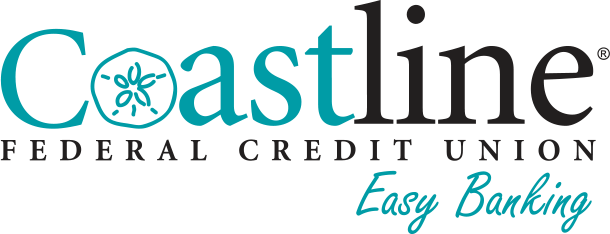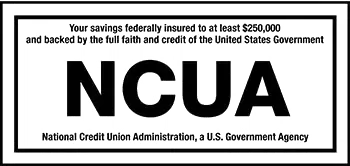Start your homebuying journey with confidence at Coastline Credit Union. Our pre-qualification process jumpstarts your loan journey, ensuring you’re empowered to make informed decisions every step of the way.
Pre-qualification is the first step towards realizing your dream home. By providing essential information about your income and debts, our lenders can accurately assess your borrowing capacity. Plus, with various loan programs available, it’s essential to get pre-qualified for each option you may qualify for.
When it comes to mortgage approval, two factors are paramount: your ability and willingness to repay the loan.
Your ability to repay is evaluated based on your employment stability and total income. Mortgage companies typically prefer a stable employment history of at least two years, or consistent work in the same field.
Your willingness to repay is gauged by how you intend to use the property. Whether it’s your primary residence or an investment property, your commitment to past financial obligations, as reflected in your credit report and rental payment history, is crucial.
At Coastline Credit Union, we understand that every applicant is unique. That’s why we approach each case individually, considering all aspects to ensure a personalized solution. Even if you fall short in one area, your strengths can offset any weaknesses.
Navigating mortgage programs can be overwhelming, but at Coastline Credit Union, we simplify the process for you. Understanding your unique situation is key to finding the perfect fit for your homeownership journey.
With a plethora of options available, each with its own rates, points, and fees, finding the right loan can feel like a daunting task. That’s where our experienced mortgage professionals come in. We assess your needs, preferences, and financial situation to recommend the most suitable mortgage program, empowering you to make an informed decision confidently.
The Application:
At Coastline Credit Union, your loan journey begins with the application, usually within days one to five. With our mortgage professionals’ guidance, you’ll complete the application and provide all required documentation promptly.
During this process, we discuss fees and closing costs, ensuring transparency. You’ll receive essential disclosures like the Good Faith Estimate (GFE) and Truth-In-Lending Statement (TIL) within three days of application submission, providing clarity on your mortgage terms.
Once the application has been submitted, the processing of the mortgage begins.
- The Processor orders the Credit Report, Appraisal, and Title Report.
- The information on the application, such as bank deposits and payment histories, are then verified.
- Any credit derogatoriness, such as late payments, collections, and/or judgments requires a written explanation.
- The processor examines the Appraisal and Title Report checking for property issues that may require further investigation.
- The entire mortgage package is then put together for submission to the lender.
If you are purchasing or refinancing your home, and you are salaried, you will need to provide the past two-years W-2s and one month of pay-stubs: OR, if you are selfemployed you will need to provide the past two-years tax returns.
If you own rental property you will need to provide Rental Agreements and the past two-years’ tax returns. If you wish to speed up the approval process, you should also provide the past three months’ bank, stock and mutual fund account statements. Provide the most recent copies of any stock brokerage or IRA/401k accounts that you might have.
If you are requesting cash-out, you will need a “Use of Proceeds” letter of explanation. Provide a copy of the divorce decree if applicable. If you are not a US citizen, provide a copy of your green card (front and back), or if you are NOT a permanent resident provide your H-1 or L-1 visa.
If you are applying for a Home Equity Loan you will need, in addition to the above documents, to provide a copy of your first mortgage note and deed of trust. These items will normally be found in your mortgage closing documents.
Credit Report:
Most people applying for a home mortgage need not worry about the effects of their credit history during the mortgage process. However, you can be better prepared if you get a copy of your Credit Report before you apply for your mortgage. That way, you can take steps to correct any negatives before making your application.
A Credit Profile refers to a consumer credit file, which is made up of various consumer credit reporting agencies. It is a picture of how you paid back the companies you have borrowed money from, or how you have met other financial obligations. There are five categories of information on a credit profile:
- Identifying Information
- Employment Information
- Credit Information
- Public Record Information
- Inquiries
NOT included on your credit profile is race, religiion, health, driving record, criminal record, political perfecence, or income.
If you have had credit problems, be prepared to discuss them honestly with a mortgage professional who will assist you in writing your “Letter of Explanation.” Knowledgeable mortgage professionals know there can be legitimate reasons for credit problems, such as unemployment, illness, or other financial difficulties. If you had problems that have been corrected (reestablishment of credit), and your payments have been on time for a year or more, your credit may be considered satisfactory.
The mortgage industry tends to create its own language, and credit rating is no different. BC mortgage lending gets its name from the grading of one’s credit based on such things as payment history, amount of debt payments, bankruptcies, equity position, credit scores, etc. Credit scoring is a statistical method of assessing the credit risk of a mortgage application. The score looks at the following items: past delinquencies, derogatory payment behavior, current debt levels, length of credit history, types of credit, and number of inquires.
By now, most people have heard of credit scoring. The most common score (now the most common terminology for credit scoring) is called the FICO score. This score was developed by Fair, Isaac & Company, Inc. for the three main credit Bureaus; Equifax (Beacon), Experian (formerly TRW), and Empirica (TransUnion).
FICO scores are simply repository scores meaning they ONLY consider the information contained in a person’s credit file. They DO NOT consider a person’s income, savings or down payment amount. Credit scores are based on five factors: 35% of the score is based on payment history, 30% on the amount owed, 15% on how long you have had credit, 10% percent on new credit being sought, and 10% on the types of credit you have. The scores are useful in directing applications to specific loan programs and to set levels of underwriting such as Streamline, Traditional, or Second Review. However, they are not the final word regarding the type of program you will qualify for or your interest rate.
Many people in the mortgage business are skeptical about the accuracy of FICO scores. Scoring has only been an integral part of the mortgage process for the past few years (since 1999); however, the FICO scores have been used since the late 1950s by retail merchants, credit card companies, insurance companies, and banks for consumer lending. The data from large scoring projects, such as large mortgage portfolios, demonstrate their predictive quality and that the scores do work.
The following items are some of the ways that you can improve your credit score:
- Pay your bills on time.
- Keep Balances low on credit cards.
- Limit your credit accounts to what you really need. Accounts that are no longer needed should be formally cancelled since zero balance accounts can still count against you.
- Check that your credit report information is accurate.
- Be conservative in applying for credit and make sure that your credit is only checked when necessary.
A borrower with a score of 680 and above is considered an A+ borrower. A loan with this score will be put through an “automated basic computerized underwriting” system and be completed within minutes. Borrowers in this category qualify for the lowest interest rates and their loan can close in a couple of days.
A score below 680 but above 620 may indicate underwriters will take a closer look in determining potential risk. Supplemental documentation may be required before final approval. Borrowers with this credit score may still obtain “A” pricing, but the loan may take several days longer to close.
Borrowers with credit scores below 620 are not normally locked into the best rate and terms offered. This loan type usually goes to “sub-prime” lenders. The loan terms and conditions are less attractive with these loan types and more time is needed to find the borrower the best rates.
All things being equal, when you have derogatory credit, all of the other aspects of the loan need to be in order. Equity, stability, income, documentation, assets, etc. play a larger role in the approval decision. Various combinations are allowed when determining your grade, but the worst-case scenario will push your grade to a lower credit grade. Late mortgage payments and Bankruptcies/Foreclosures are the most important. Credit patterns, such as a high number of recent inquiries or more than a few outstanding loans, may signal a problem. Since an indication of a “willingness to pay” is important, several late payments in the same time period are better than random lates.
An appraisal of real estate is the valuation of the rights of ownership. The appraiser must define the rights to be appraised. The appraiser does not create value, the appraiser interprets the market to arrive at a value estimate. As the appraiser compiles data pertinent to a report, consideration must be given to the site and amenities as well as the physical condition of the property. Considerable research and collection of data must be completed prior to the appraiser arriving at a final opinion of value.
Using three common approaches, which are all derived from the market, derives the opinion, or estimate of value.
- The first approach to value is the COST APPROACH. This method derives what it would cost to replace the existing improvements as of the date of the appraisal, less any physical deterioration, functional obsolescence, and economic obsolescence.
- The second method is the COMPARISON APPROACH, which uses other “bench mark” properties (comps) of similar size, quality and location that have recently sold to determine value.
- The INCOME APPROACH is used in the appraisal of rental properties and has little use in the valuation of single family dwellings. This approach provides an objective estimate of what a prudent investor would pay based on the net income the property produces.
Once the processor has put together a complete package with all verifications and documentation, the file is sent to the lender.
The underwriter is responsible for determining whether the package is deemed an acceptable loan. If more information is needed, the loan is put into “suspense” and the borrower is contacted to supply more information and/or documentation. If the loan is acceptable as submitted, the loan is put into an “approved” status.
Once the loan is approved, the file is transferred to the closing and funding department. The funding department notifies the broker and closing attorney of the approval and verifies broker and closing fees. The closing attorney then schedules a time for the borrower to sign the loan documentation.
At the closing the borrower should:
- Bring a cashiers check for your down payment and closing costs if required. Personal checks are normally not accepted and if they are they will delay the closing until the check clears your bank.
- Review the final loan documents. Make sure that the interest rate and loan terms are what you agreed upon. Also, verify that the names and address on the loan documents are accurate.
- Sign the loan documents.
- Bring identification and proof of insurance.
- After the documents are signed, the closing attorney returns the documents to the lender who examines them and, if everything is in order, arranges for the funding of the loan. Once the loan has funded, the closing attorney arranges for the mortgage note and deed of trust to be recorded at the county recorders office. Once the mortgage has been recorded, the closing attorney then prints the final settlement costs on the HUD-1 Settlement Form. Final disbursements are then made.
A typical “A” mortgage transaction takes between 14-21 business days to complete. With new automated underwriting, this process speeds up greatly.
Contact one of our experienced Loan Officers today to discuss your particular mortgage needs or Apply Online and a Loan Officer will promptly get back to you.
FAQs
From application to closing, we are here for you every step of the way.
Required Documents
Find a complete list of documents required to begin the process.
Apply Now
Ready to make the first step toward your new home? Get Started Today!




